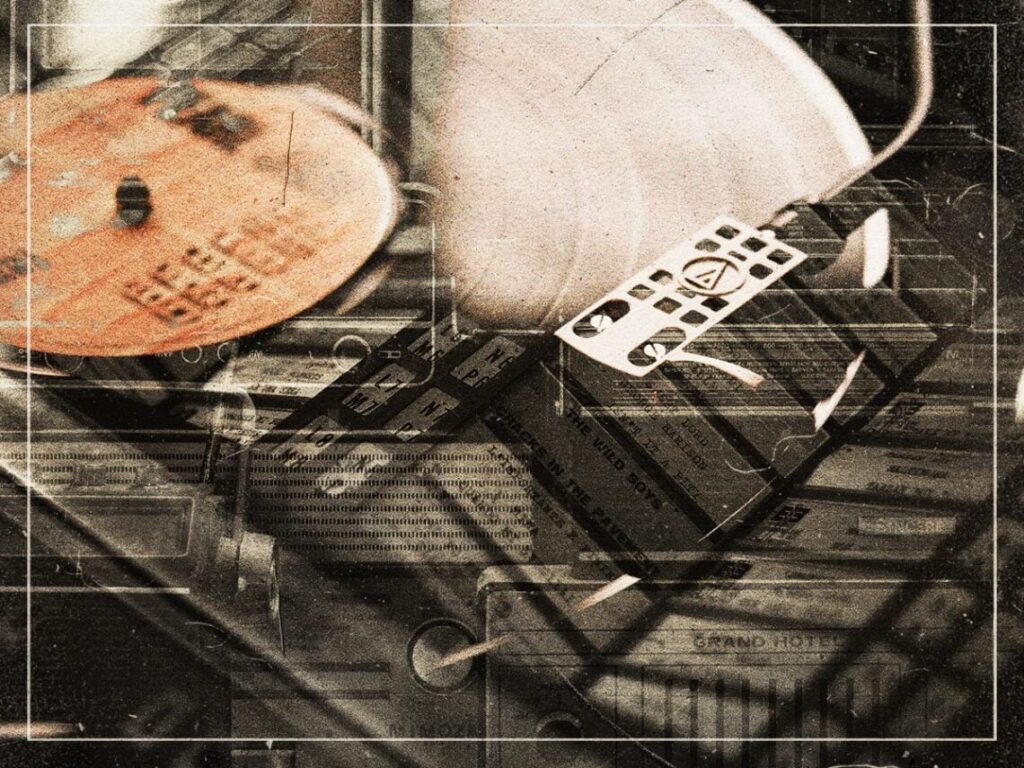Does vinyl really sound better?
 Posted On
Posted On
(Credits: Far Out / Maksym Pozniak-Haraburda)
In 1982, the CD arrived as a listening format for the very first time, eliciting the gradual digital takeover. In the music world, vinyl records became obsolete as cumbersome, shelf-hogging media vulnerable to damage and degradation. Similarly, the analogue medium of film became obsolete in photography and cinema as digital memory cards and DVDs swerved into pole position.
DVDs overtook VHS sales for the first time in 2002, echoing a similar feat achieved by the CD in 1988 as the compact format surpassed record sales. While very few of us are trading in our old DVDs or cancelling our Netflix subscriptions in favour of dusty charity shop VHS tapes, analogue is proving its immortal popularity in other realms.
Many photographers and filmmakers favour the expensive film medium over digital alternatives because the output pictures are noticeably different. Unlike analogue, digital is limited to ones and zeroes, which in pictorial applications necessitates pixels limited to the red, green, and blue subpixel colours.
Modern technological advancements have allowed digital to match and even surpass the definition achieved by the continuous medium of film, yet artists still favour the latter for its unmatched warmth and true-to-life colour mix. The return of vinyl in recent years can be explained using the same argument: that records hold that analogous warmth that digital files can’t seem to match.
In a recent interview with Far Out, Pink Floyd drummer Nick Mason revealed that he is encouraged by the recent vinyl resurgence in the face of artificial intelligence advancements. “This whole business of vinyl coming back is interesting because vinyl is not as good as a CD in terms of quality,” he asserted. “But the reality is we actually do like certain analogue things.”
Analogue vs Digital
So, the answer to the titular question hangs very much in the balance. Audiophiles with creaking shelves and a hi-fi set-up worthy of an individual insurance plan will argue that vinyl is the superior product. As Mason said, digital music can attain a higher definition in the modern day. However, expertly mastered vinyl is more resistant to the distortion experienced when listeners turn the volume up on their CDs and streaming files. Despite the broader dynamic range available in digital media, any distortion is “colder” than that heard in analogue formats.
Even if digital was superior to vinyl on all technical fronts, subjective inclinations are impossible to ignore. The truth is, collectors enjoy the tactile experience of handling the record, the act of placing it on a turntable and admiring the artistic and informative qualities of the sleeve. The warmth that audiophiles claim the vinyl sound holds to the comparatively frigid digital format could simply come from the warmth of nostalgia.
Frankly, crate digging and film development are labours of love. The difference between artists and accountants is that artists tend to enjoy the process more than the product. That is why AI should never have a home in the creative arts.
[embedded content]


